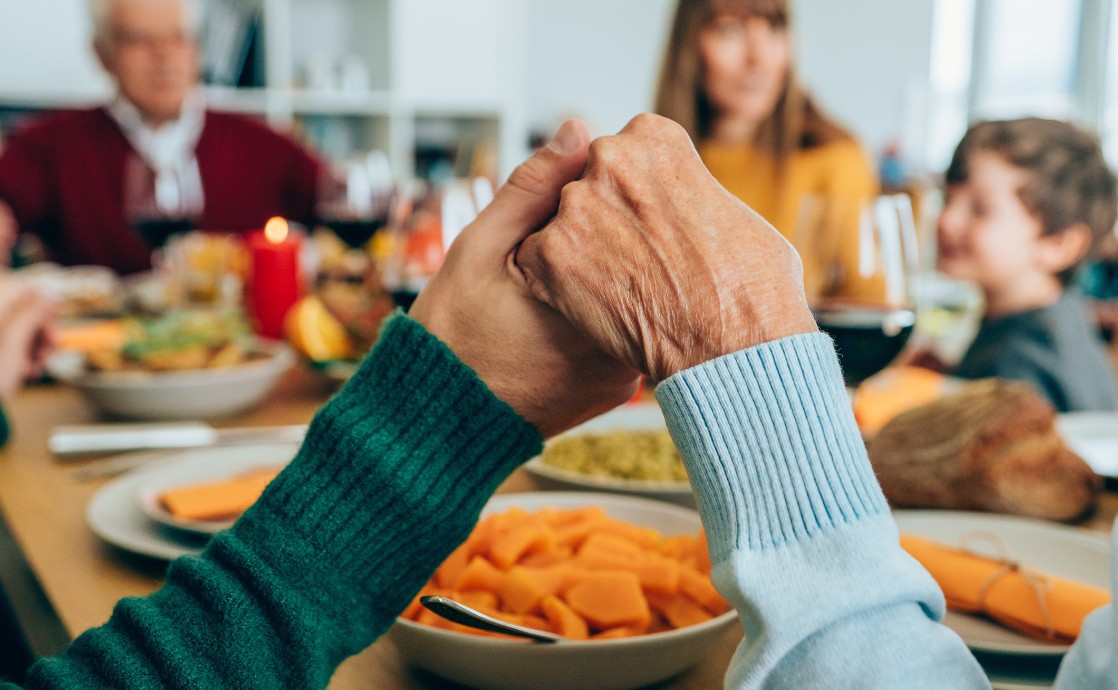The views expressed in our content reflect individual perspectives and do not represent the authoritative views of the Baha'i Faith.
I recently saw Sadaguru, a reputable Indian guru who shares many views with the Baha’i teachings, speak about the sacredness of food.
When one sits down to a meal, he said, one should first appreciate the food, and the Earth from which it comes. He says this gratitude will have an effect on the food as it transforms into energy within our bodies.
RELATED: Nutrition from a Baha’i Perspective
OK, to some this may sound a little far-fetched. But after some research and meditation on the subject, I offer these quotes and some thoughts. First, this passage from the Baha’i writings, revealed by Baha’u’llah, has always seemed extremely profound to me:
What is it of which ye can rightly boast? Is it on your food and your drink that ye pride yourselves, on the riches ye lay up in your treasuries, on the diversity and the cost of the ornaments with which ye deck yourselves? If true glory were to consist in the possession of such perishable things, then the earth on which ye walk must needs vaunt itself over you, because it supplieth you, and bestoweth upon you, these very things, by the decree of the Almighty. In its bowels are contained, according to what God hath ordained, all that ye possess. From it, as a sign of His mercy, ye derive your riches. Behold then your state, the thing in which ye glory! Would that ye could perceive it!
Among other things, this quote addresses how we take for granted the sustenance upon which we depend. Indeed, we take so much for granted that we live in a very disconnected state of mind – and the world we now live in, with its environmental degradation, is the direct consequence of our seeing the world as separate and subordinate to ourselves.
When I say “we” I’m not including the Indigenous cultures of the world, as they by and large, have remained close and connected to the Earth. To inculcate an appreciation of the Earth and its bounty, we could certainly thank the foods that we receive as they are served at table. Of course, many faiths and cultures have prayers, customs, and rituals for doing exactly that.
The goal of those customs is to become more connected, more immediately conscious of that which sustains us.
As we learn to remove the separation between ourselves and our bodies from all other physical life, we grow into a higher level of existing. Through this awareness we will model our behavior to respect the Earth and its minerals, plants, and animals, with greater sensitivity to the environment.
If we take the trajectory of such consciousness and behavior out to its largest global implication, humanity would eventually change the world from one in which all things are separated into one in which all are united. Though it will demand great insight, energy and effort, this would simply be in conformity with the reality that already exists.
This Baha’i prayer from Abdu’l-Baha, meant for use when people gather to eat together, illustrates that ideal:
He is God! Thou seest us, O my God, gathered around this table, praising Thy bounty, with our gaze set upon Thy Kingdom. O Lord! Send down upon us Thy heavenly food and confer upon us Thy blessing. Thou art verily the Bestower, the Merciful, the Compassionate.
RELATED: 9 Health and Wellness Tips From a Baha’i Perspective
To go back to the individual experience: I’ve tried what Sadaguru suggested with the last few meals I’ve had. While the food I prepared was before me, I first thought about how it came to be, how the Earth contained its nutrients and how the sky offered light, warmth, and water. I thought about the seeds of the plants I was about to eat, how they evolved over time to be what they are today. I thought about the farmers and the ancient developers of farming. I thought about how I had prepared the ingredients, washing, slicing, cooking. I thought of how the food would give me strength and energy, how it would fit the needs of my body.
After this contemplation I took my first bite. I won’t say anything miraculous happened, except that I now had a reverence for the whole process. Let’s say that appreciating the food first slowed down the process of partaking and integrated it with my consciousness. Like a lot of us, there is a degree of emotional eating in all eating. We tend to dive into food for comfort. It is impulsive and always fast. This is such a well-understood behavior that the food industry manufactures foods with ingredients known to further trigger our dopamine and serotonin responses, so that we keep coming back for more.
Eating that way can become an addiction.
The practice of revering our food and the Earth before eating puts an interval between food and its consumption, thus breaking the pattern of just taking it in without awareness or appreciation. This slowing down is known to have a positive effect on how food digests.
My dear late mother had the great habit of putting her fork down between every bite she took. She ate very slowly, delighting in the taste of the food, which is simply an extension of its appreciation. She lived to be 102.
You May Also Like
Comments

















I try to recite Abdul Baha's two Grace at Table prayers before every meal to reframe my mindset.